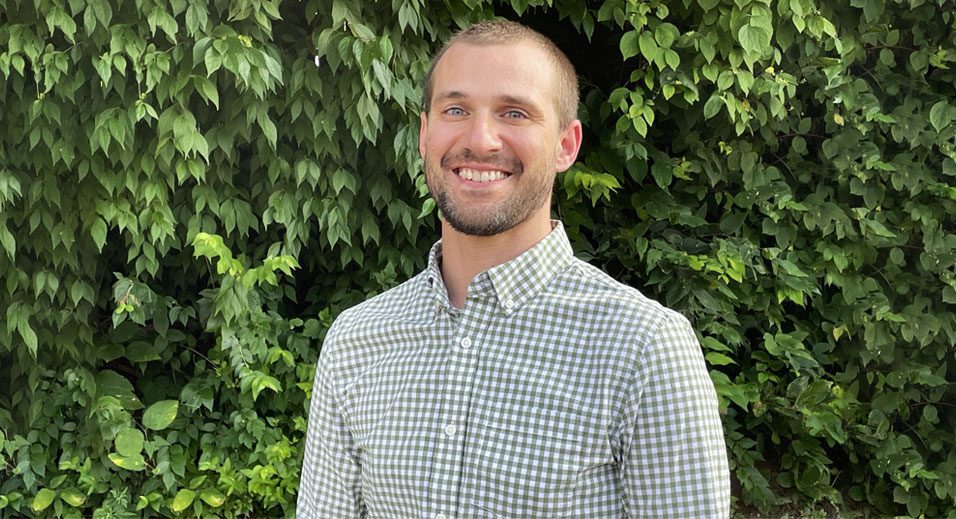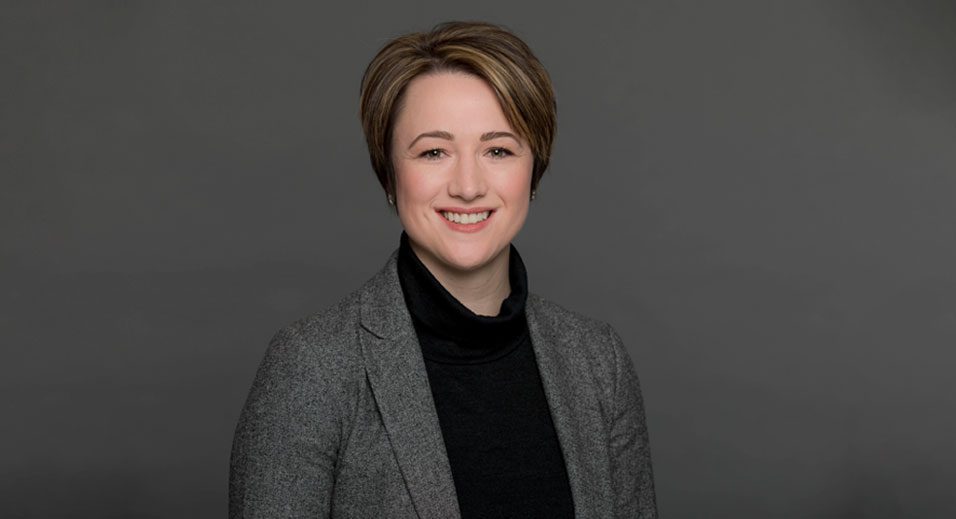Alex ensures quality in our LightLife tempeh products, minimizes food waste, and shares his anticipation for advancements in regenerative agriculture.
Alex Spetter is a Food Safety and Quality Assurance (FSQA) Supervisor at our Indianapolis plant in the U.S. He joined Maple Leaf Foods in 2021 when we first opened our home of tempeh in Indiana as part of our plant-based protein business. Tempeh is a soybean-based product that’s high in protein and fibre, naturally fermented, and made with three simple ingredients. We produce it under our LightLife brand!
Before joining our team, Alex worked at a baby food manufacturing company for about seven years. He graduated from Purdue University with a degree in Food Science and has a Master of Business Administration (MBA) degree from the Kelley School of Business. It was while studying for his MBA that Alex first learned about corporate sustainability and the value in working for an organization that cares deeply about protecting the planet — what a wonderful opportunity to hone his passion at Maple Leaf Foods where we’re on a journey to become the most sustainable protein company on Earth!
On the personal side, Alex recently moved into his first home with his wife and loves enjoying the city life with walking trails and adventurous fun. As an avid bike rider, Alex also recently vacationed in Europe where he got to watch a few stages of the Tour de France.
Read on to learn more about Sustainability Hero Alex!
What brought you to Maple Leaf Foods and what has made you stay?
In my job search, I was looking for a food company that I could feel proud of what we put out into the community. It was important to me that the product be good for the consumer while the company be good for the local and global community. When I saw the job opening for a new LightLife factory in my hometown in Indianapolis, I jumped at the opportunity. With the protein industry projected to double in just a few decades, I believe that the plant-based sector is an important piece to the puzzle in meeting that demand sustainably, and that’s something I wanted to be part of.
Maple Leaf Foods wasn’t a household name in my American upbringing, so I needed to do some research on the parent company. I quickly realized that Maple Leaf was taking its role seriously in putting all of the sustainability puzzle pieces together and I knew it was a place where I could grow professionally. I’ve been here for nearly three years, and I’m not looking back.
What role does sustainability play in your job in FSQA?
The FSQA team plays a key role in the sustainability of the food industry especially related to waste. Ultimately, unsafe or unsavory food is wasted food. And that impact compounds pretty quickly with every step down the line as you start to add things like extra ingredients, packaging, and transportation to the mix. So, finding the issues as early as possible is very important.
On the other side of the same coin, the FSQA team also has the challenge of making disciplined decisions when bracketing non-conforming product — items that are not produced according to specifications, for example if the cooking temperature is off even by one degree. We need to be confident that we are keeping our consumers safe and satisfied while ensuring we don’t scrap any more wholesome food than is necessary when an issue comes up. Sometimes we have to cast a wide net to ensure we’ve captured all the bad product, and the net just gets wider and wider if we don’t have enough data to draw a sharp line between good and bad.
Both of these cases illustrate just how important our quality checks are!
What does sustainability at Maple Leaf Foods mean to you?
For the last few years, my email signature has included one of my favorite quotes related to sustainability. The nature documentarian David Attenborough once said, “Anything that we can’t do forever is by definition, unsustainable.” I love this quote because while it is directed towards our environmental impact, it really encompasses all aspects of our Shared Value. We can’t operate in communities forever without benefiting them. We can’t produce without making any money forever. And in that same way, we can’t take from the Earth more than we give back forever. I’m encouraged to see this value continuously played out and taken seriously.
How do you practice sustainability in your everyday life — inside and outside of work?
In general, I try to be aware of the things I throw away and ask myself if there was a better option. When you toss something in the garbage bin, it’s out of sight, out of mind all too easily so I try to be more conscious of that with reusable water bottles and grocery bags.
At work, I try not to print anything I don’t have to, and I use a reusable Keurig cup when making coffee. I just moved into a new home so setting up a compost bin and rain barrels is on the list along with planting native species. Just trying to do some of the little things every day!
What do you hope for the future of sustainability at Maple Leaf Foods?
I’d say I’m most hopeful about our investments in regenerative agriculture because it’s a way that we can have a huge influence on our food system as a whole. Working with the agriculture community and helping create more sustainable practices benefits everyone. Seeing the company drive forward with this initiative and create this new standard is exciting!


